
Enchanting Pieniny Mountains: Poland's Natural Gem
Nestled in southern Poland, the Pieniny Mountains offer visitors a breathtaking landscape filled with lush forests, dramatic cliffs, and meandering rivers. This picturesque region is part of the Pieniny National Park, which is renowned for its unique flora and fauna, making it a paradise for nature enthusiasts and hikers alike. The Dunajec River Gorge, one of the highlights of the park, provides a stunning backdrop for traditional wooden raft trips, offering an unforgettable way to experience the area's beauty. The Pieniny Mountains are also steeped in history and culture. The region is dotted with charming villages, ancient castles, and historic churches that tell tales of Poland's rich past. Visitors can explore the famous Niedzica Castle, perched on a cliff overlooking the Czorsztyn Lake, or visit the 14th-century Red Monastery, which lies just across the border in Slovakia. The area's cultural heritage is further celebrated through local festivals, folk music, and traditional crafts that give a glimpse into the life and traditions of the highlanders. Adventure seekers will find plenty to do in the Pieniny Mountains. The area offers a variety of outdoor activities, including hiking, cycling, and rock climbing. In winter, the mountains transform into a snowy wonderland, perfect for skiing and snowboarding. Whether you're looking for a peaceful retreat in nature or an action-packed holiday, the Pieniny Mountains cater to all kinds of travelers.
Local tips in Pieniny Mountains
- Visit during late spring or early autumn to enjoy mild weather and fewer crowds.
- Try a traditional wooden raft trip down the Dunajec River for a unique sightseeing experience.
- Wear sturdy walking shoes, as many trails in the area can be steep and rocky.
- Don't miss out on local delicacies like Oscypek cheese, which is a regional specialty.
- Bring cash, as some local shops and restaurants may not accept credit cards.
Enchanting Pieniny Mountains: Poland's Natural Gem
Nestled in southern Poland, the Pieniny Mountains offer visitors a breathtaking landscape filled with lush forests, dramatic cliffs, and meandering rivers. This picturesque region is part of the Pieniny National Park, which is renowned for its unique flora and fauna, making it a paradise for nature enthusiasts and hikers alike. The Dunajec River Gorge, one of the highlights of the park, provides a stunning backdrop for traditional wooden raft trips, offering an unforgettable way to experience the area's beauty. The Pieniny Mountains are also steeped in history and culture. The region is dotted with charming villages, ancient castles, and historic churches that tell tales of Poland's rich past. Visitors can explore the famous Niedzica Castle, perched on a cliff overlooking the Czorsztyn Lake, or visit the 14th-century Red Monastery, which lies just across the border in Slovakia. The area's cultural heritage is further celebrated through local festivals, folk music, and traditional crafts that give a glimpse into the life and traditions of the highlanders. Adventure seekers will find plenty to do in the Pieniny Mountains. The area offers a variety of outdoor activities, including hiking, cycling, and rock climbing. In winter, the mountains transform into a snowy wonderland, perfect for skiing and snowboarding. Whether you're looking for a peaceful retreat in nature or an action-packed holiday, the Pieniny Mountains cater to all kinds of travelers.
When is the best time to go to Pieniny Mountains?
Iconic landmarks you can’t miss
Zamek Dunajec w Niedzicy
Discover the rich history and breathtaking views at Zamek Dunajec, a medieval castle nestled in the stunning Pieniny Mountains of Poland.
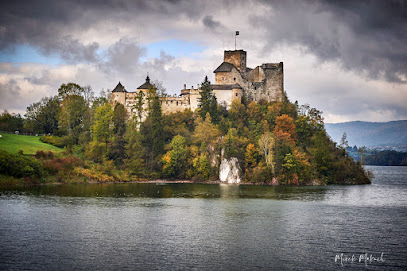
Pieniński Park Narodowy
Experience the breathtaking beauty of Pieniński Park Narodowy, Poland's national park known for its stunning landscapes, outdoor adventures, and rich biodiversity.
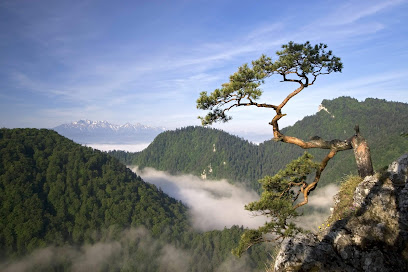
Czorsztyn Castle
Discover the enchanting Czorsztyn Castle, a historical gem with breathtaking views of Lake Czorsztyn and the Pieniny Mountains.
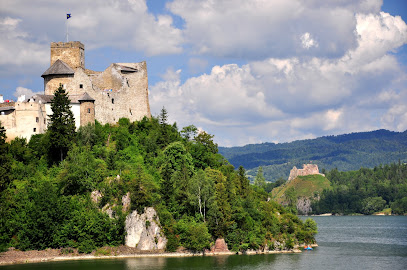
Red Monastery
Explore the historical Red Monastery in Slovakia, a serene blend of culture and nature, surrounded by breathtaking landscapes and rich heritage.
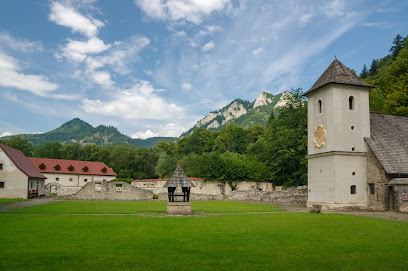
Schronisko PTTK Trzy Korony
Discover the enchanting beauty of the Pieniny Mountains at Schronisko PTTK Trzy Korony, your ideal mountain lodge with local cuisine and breathtaking views.
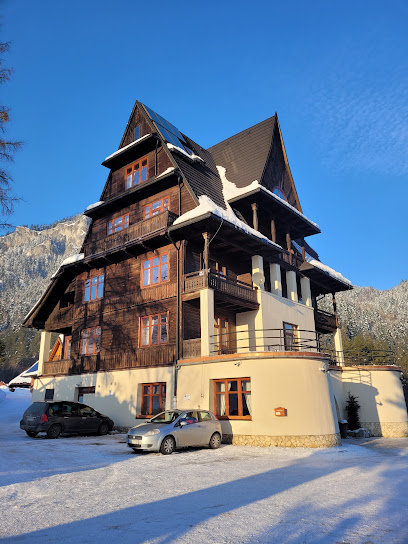
Plaża Zamajerz
Discover the charm of Plaża Zamajerz, where relaxation meets adventure on the shores of Zalew in Niedzica, Poland.
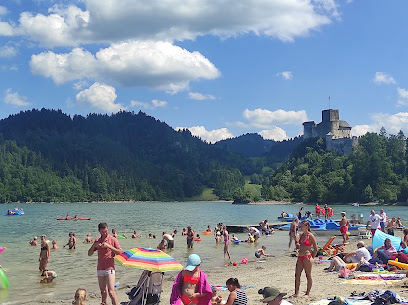
Pieniny National Park
Explore the breathtaking beauty of Pieniny National Park, Slovakia's hidden gem filled with stunning landscapes and thrilling outdoor adventures.
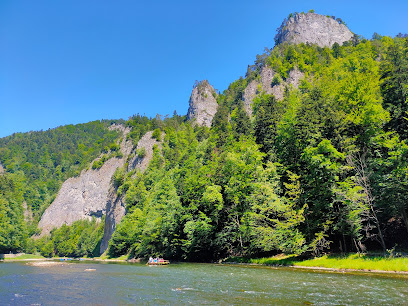
Rezerwat Wysokie Skałki
Explore the breathtaking landscapes of Rezerwat Wysokie Skałki, a stunning nature preserve in Szczawnica, perfect for hiking and nature enthusiasts.
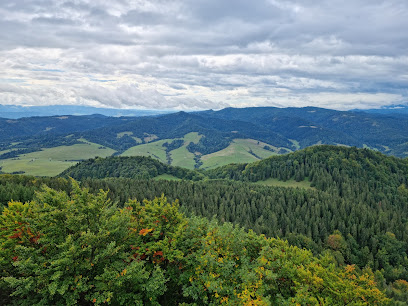
Trzy Korony
Discover Trzy Korony, a breathtaking mountain peak in Poland's Pieniny National Park, perfect for hiking and nature lovers seeking adventure and stunning views.
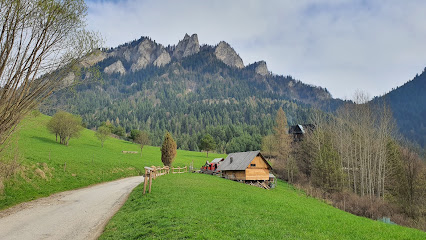
Pieniny
Discover the enchanting beauty and adventure of the Pieniny Mountains, where nature meets culture in southern Poland.
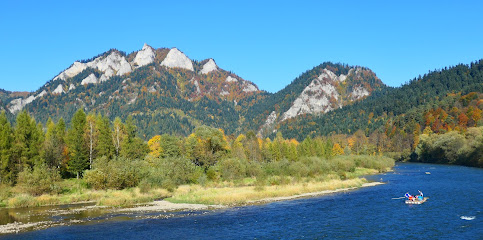
Zamek Pieniński
Explore the enchanting Zamek Pieniński, a captivating ruin offering stunning views and rich history in the heart of the Pieniny Mountains.
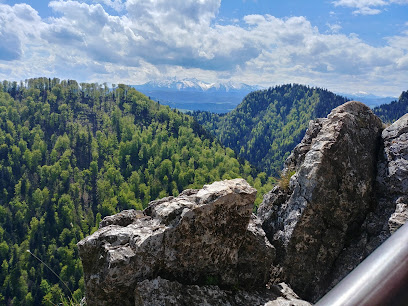
Muzeum Pienińskie
Explore the captivating history and culture of the Pieniny region at Muzeum Pienińskie, a must-visit museum for every tourist.
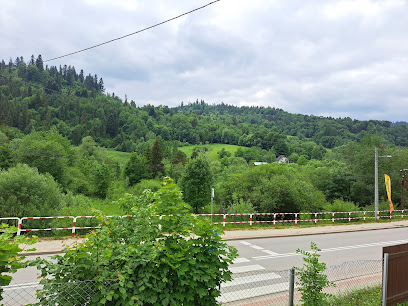
Museum of Pieniny National Park
Explore the Museum of Pieniny National Park: A gateway to the stunning landscapes and rich biodiversity of Poland's natural heritage.
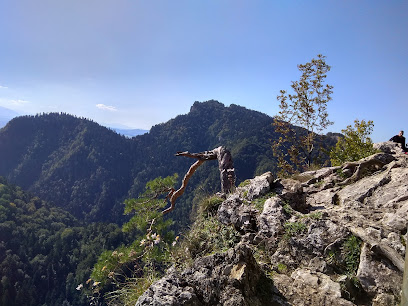
Wysoki Wierch
Explore the stunning heights of Wysoki Wierch, a breathtaking mountain peak in Pieniny, offering panoramic views, diverse hiking trails, and natural beauty.
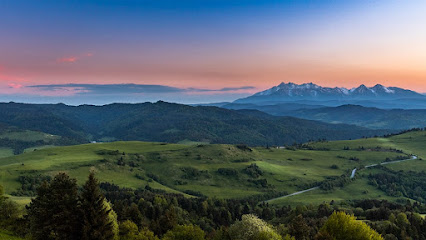
PIENINY GRAND Szczawnica
Discover the beauty of Pieniny Grand in Szczawnica, where luxury meets nature for an unforgettable getaway.
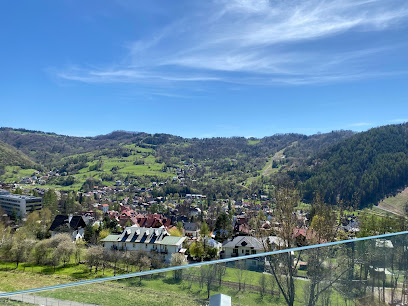
Unmissable attractions to see
Babia Góra National Park
Explore the breathtaking landscapes and rich biodiversity of Babia Góra National Park, a natural gem in southern Poland.
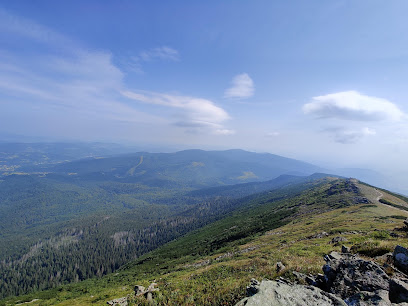
Czorsztyn Castle
Explore the enchanting Czorsztyn Castle, a historic gem with stunning lake views and rich medieval heritage in Poland.
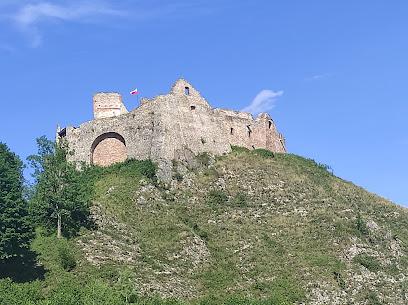
Red Monastery
Explore the Red Monastery in Slovakia: A historical gem surrounded by nature's beauty, perfect for culture and adventure lovers.
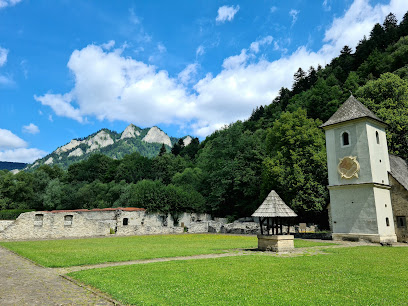
Spływ Dunajcem - Początek
Discover the stunning landscapes and thrilling rafting experience at Spływ Dunajcem - Poczatek in Sromowce Wyżne, a must-visit for nature lovers and adventurers.
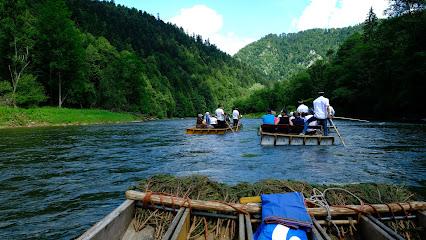
Wodospad Zaskalnik
Explore the breathtaking Wodospad Zaskalnik, a stunning waterfall in Szczawnica, perfect for hiking and nature lovers seeking tranquility.
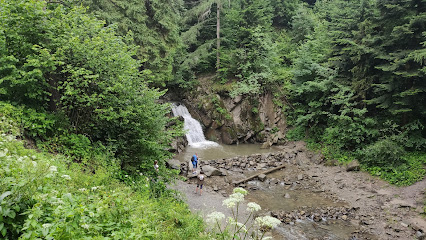
Pieniny National Park
Explore the breathtaking landscapes and rich wildlife of Pieniny National Park, a hidden gem in Slovakia perfect for adventure seekers and nature lovers.
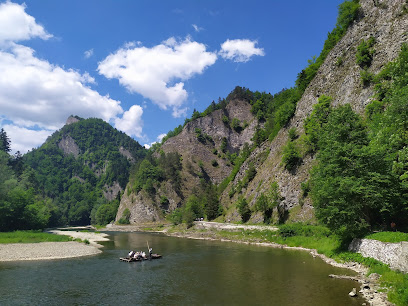
Muzeum Oscypka
Experience the rich tradition of Polish cheese-making at Muzeum Oscypka in Zakopane, where culture meets culinary delight.
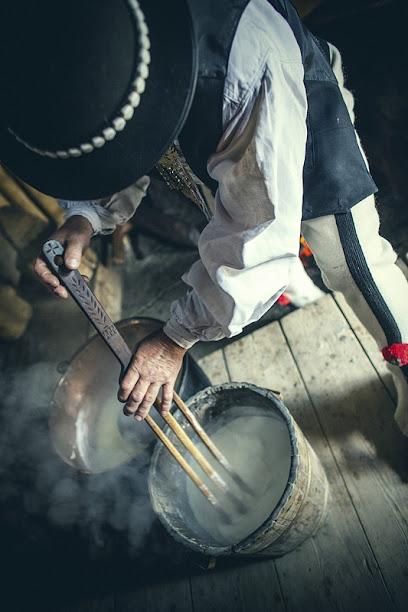
Kościeliska Valley
Explore the enchanting Kościeliska Valley, a natural paradise in the Tatra Mountains, where stunning landscapes and rich wildlife await every adventurer.
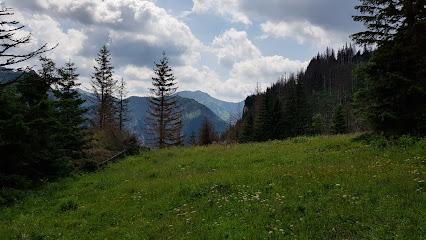
PORT PIENIN - Canoeing and Pontoon Rafting | Rafting on the Dunajec
Discover the thrill of canoeing and rafting at Port Pienin, a stunning adventure destination on the Dunajec River in Szczawnica, Poland.
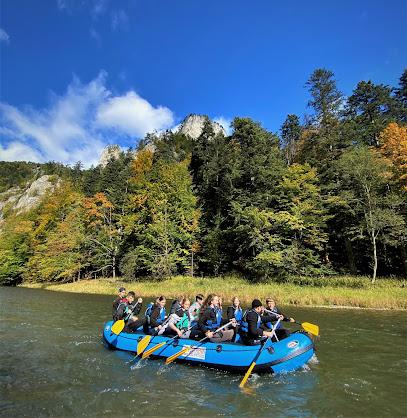
Rezerwat Wysokie Skałki
Explore the natural beauty of Rezerwat Wysokie Skałki in Szczawnica, where stunning landscapes and diverse wildlife await your discovery.
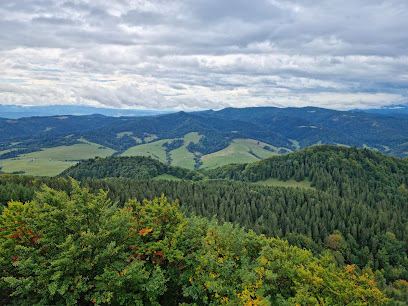
Trzy Korony
Explore Trzy Korony, a breathtaking mountain peak in Pieniny National Park, offering stunning views and unforgettable hiking experiences.
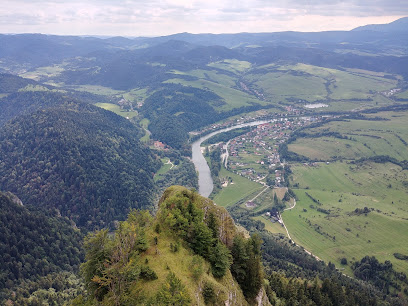
Cableway Palenica (station Szczawnica)
Experience the awe-inspiring Cableway Palenica in Szczawnica, where adventure meets breathtaking views of the Pieniny Mountains.
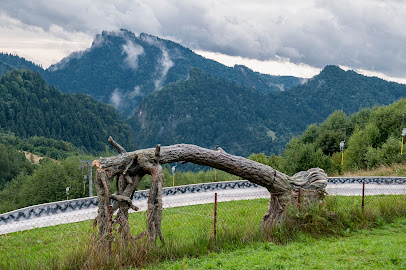
The Ski-Jaworki Homole
Discover the ultimate skiing experience at Ski-Jaworki Homole, where stunning natural beauty meets thrilling winter sports in Poland's Pieniny Mountains.
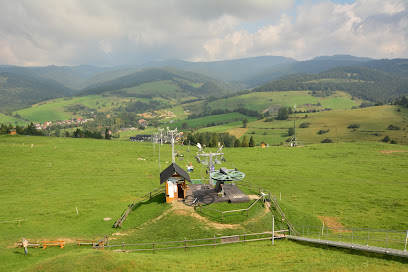
Dunajec Rafting
Discover the breathtaking beauty of Poland while enjoying an unforgettable rafting adventure on the stunning Dunajec River.
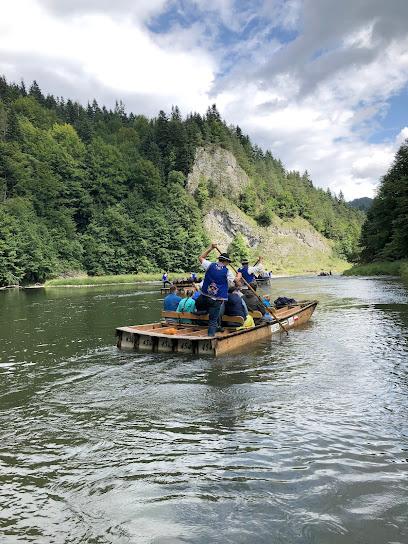
Spływ Dunajcem - Biuro spływu
Explore the stunning landscapes of the Pieniny Mountains while enjoying a thrilling rafting adventure on the Dunajec River in Sromowce Wyżne.
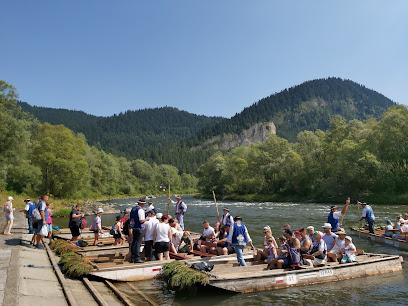
Essential places to dine
Schronisko PTTK Trzy Korony
Discover comfort and adventure at Schronisko PTTK Trzy Korony - your perfect retreat in the stunning Pieniny Mountains.
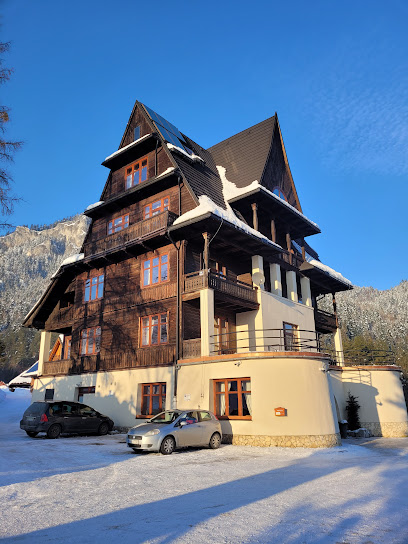
Karczma Dunajec
Experience authentic Polish cuisine at Karczma Dunajec in Krościenko nad Dunajcem—where tradition meets family-friendly dining.
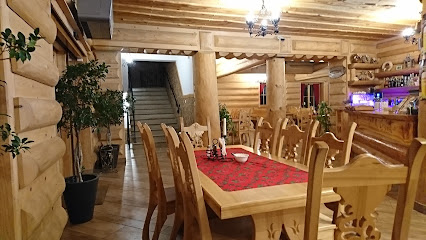
Zadyma
Discover authentic Polish cuisine at Zadyma in Niedzica with stunning mountain views and a warm atmosphere.
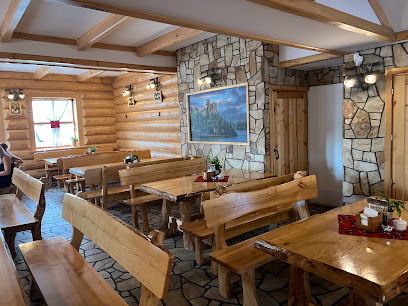
Restauracja Bacówka
Discover authentic Polish cuisine amidst nature at Restauracja Bacówka in Jaworki - a haven for food lovers seeking traditional flavors.
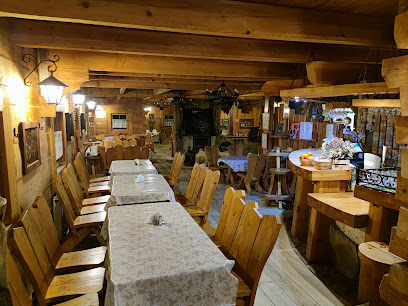
Schronisko PTTK Orlica
Experience authentic Polish cuisine and breathtaking hikes at Schronisko PTTK Orlica in Szczawnica – a perfect blend of adventure and relaxation.
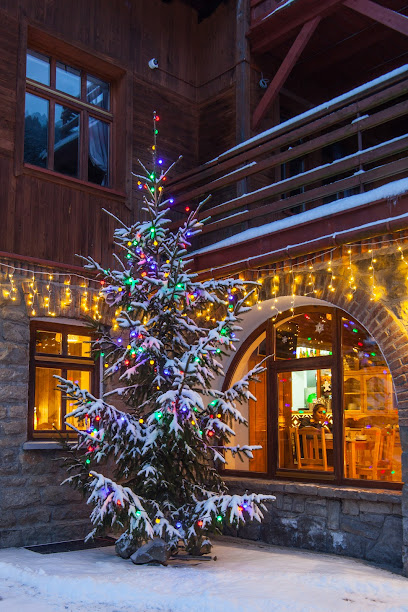
Zajazd Dolina Dunajca
Experience authentic Polish cuisine at Zajazd Dolina Dunajca, where local flavors meet stunning landscapes in Maszkowice.
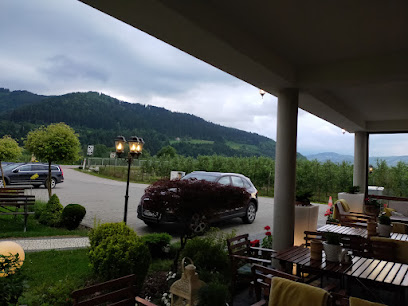
Markowa Zagroda - smażalnia pstrąga!
Savor fresh trout dishes at Markowa Zagroda - Mizerna's premier fish restaurant surrounded by stunning nature.
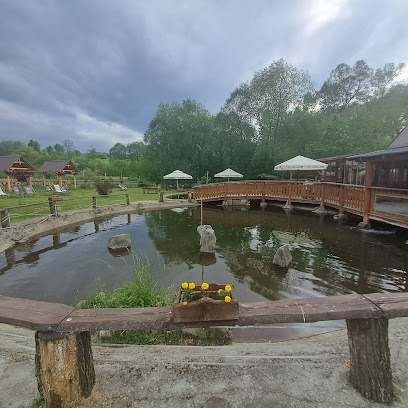
Restauracja KOCI ZAMEK w Szczawnicy
Experience authentic Polish flavors at Restauracja KOCI ZAMEK in Szczawnica, where delightful dishes meet breathtaking views.
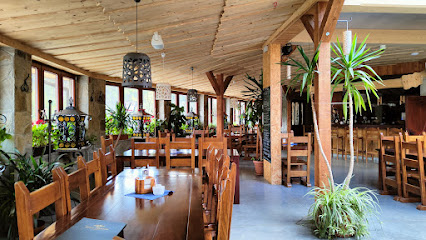
Restaurant BOHEMA - Willa Marta
Discover authentic Polish cuisine at Restaurant BOHEMA - Willa Marta in Szczawnica; where tradition meets taste in a picturesque setting.
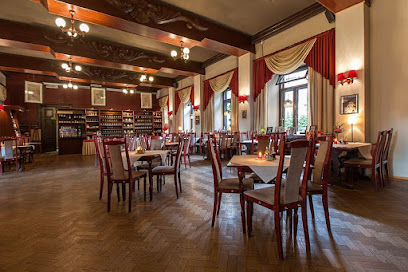
Karczma po Góralsku u Stasi
Savor traditional Polish cuisine in a cozy setting at Karczma po Góralsku u Stasi while enjoying breathtaking mountain views.
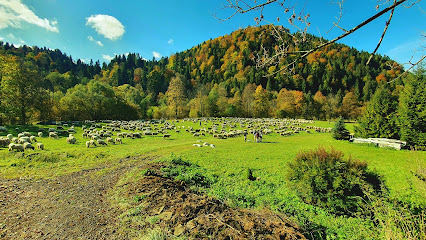
Hotel Nad Przełomem
Discover tranquility and adventure at Hotel Nad Przełomem in Pieniny Mountains with exceptional dining, spa services, and breathtaking views.
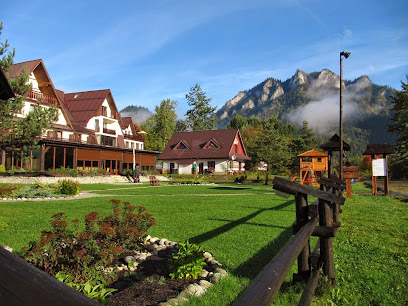
PTTK mountain hut under Bereśnikiem
Experience breathtaking views and authentic local cuisine at PTTK Mountain Hut under Bereśnikiem - your perfect hiking retreat.
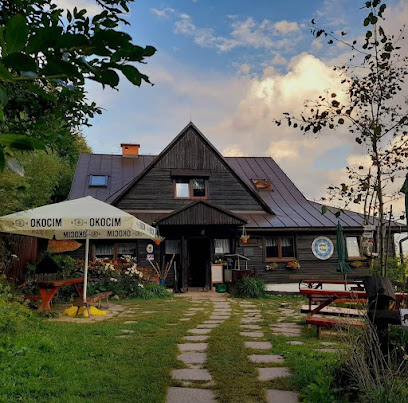
Karczma „U Walusia”
Discover the heart of Poland at Karczma 'U Walusia', where traditional flavors meet stunning landscapes for an unforgettable dining experience.
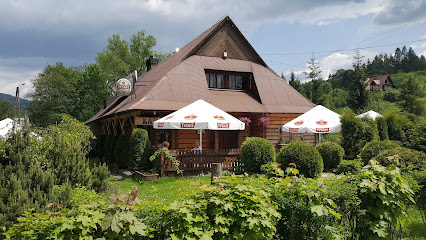
Willa Pokusa, restaurant, cafe
Discover Willa Pokusa in Szczawnica: A delightful restaurant serving exquisite pizza and aromatic coffee in a charming setting.
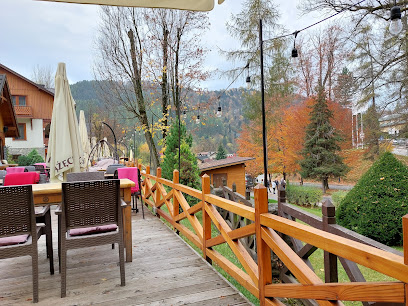
Karczma u Madejów w Szczawnicy
Discover authentic Polish cuisine at Karczma u Madejów in Szczawnica – where family-friendly dining meets rustic charm.
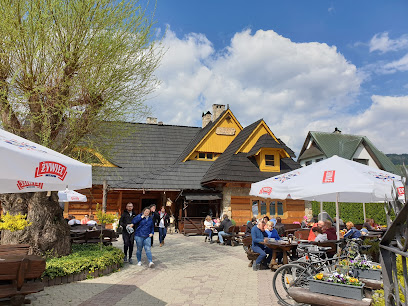
Markets, malls and hidden boutiques
Galeria Krakowska
Discover the ultimate shopping experience at Galeria Krakowska, featuring top brands, diverse dining, and local culture in the heart of Kraków.
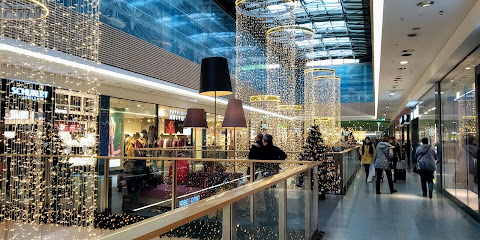
Zamek Dunajec w Niedzicy
Explore Zamek Dunajec w Niedzicy, a captivating historical castle nestled in the Pieniny Mountains, offering stunning views and rich cultural experiences.
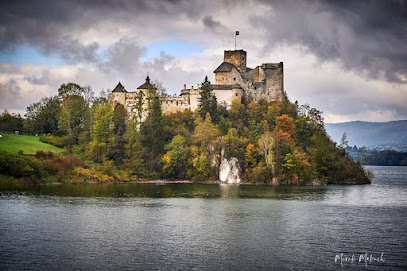
Pieniński Park Narodowy
Discover breathtaking landscapes and outdoor adventures in Pieniński Park Narodowy, a gem of Poland's natural heritage.
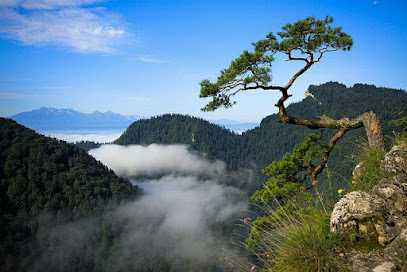
Czorsztyn Castle
Discover the enchanting Czorsztyn Castle, a historical gem nestled in Poland’s breathtaking Pieniny Mountains, offering stunning views and rich heritage.
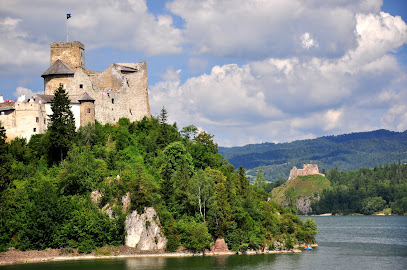
Forum Gdańsk
Explore the vibrant Forum Gdańsk, where shopping, dining, and entertainment come together in a modern setting.
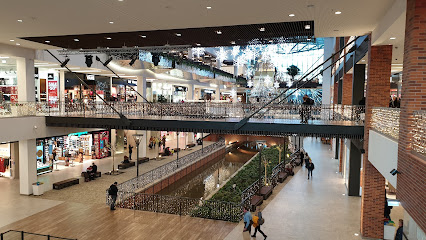
Red Monastery
Experience the rich history and breathtaking landscapes at the Red Monastery, a cultural gem in Slovakia's Pieniny National Park.
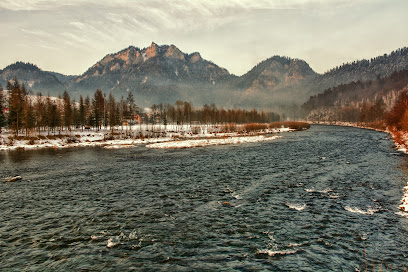
Pieniny National Park
Explore the stunning landscapes and diverse wildlife of Pieniny National Park, a natural haven in the heart of Slovakia.
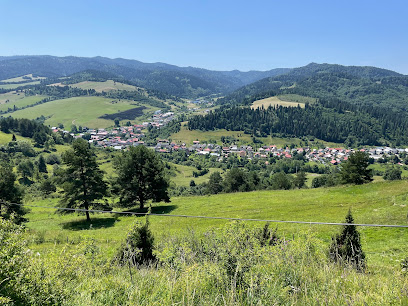
Cableway Palenica (station Szczawnica)
Explore breathtaking mountain views and adventure at Cableway Palenica in Szczawnica, a top tourist attraction in Poland.
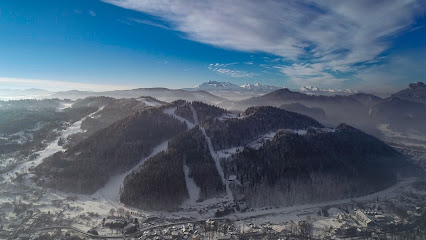
Willa Pokusa, restaurant, cafe
Discover the culinary treasure of Szczawnica at Willa Pokusa, where Polish charm meets Italian taste in a picturesque setting.
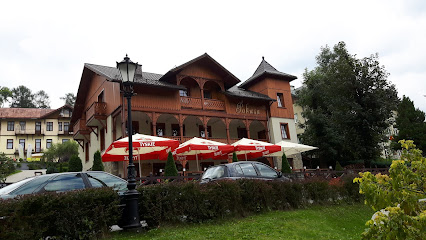
SzewczykTravel - Spływ Dunajcem, wycieczki
Experience the enchanting beauty of Szczawnica with SzewczykTravel, your go-to agency for unforgettable adventures and local insights.
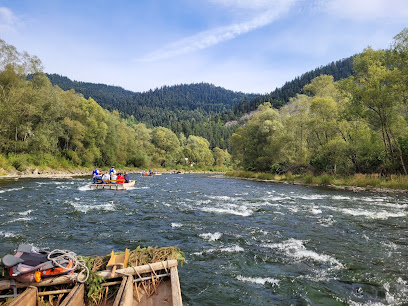
BikeTrip Bike Rental - Wypożyczalnia Rowerów, Serwis rowerowy
Discover Kraków's beauty on two wheels with BikeTrip - your premier bike rental service for an unforgettable cycling adventure.
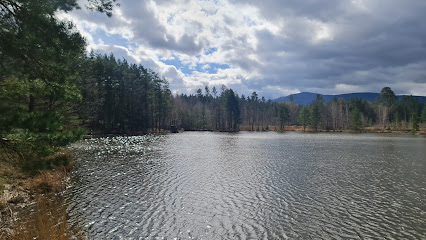
Ośrodek Ryterski
Experience the charm of Ośrodek Ryterski, a perfect blend of adventure and relaxation amidst stunning mountain landscapes in Poland.
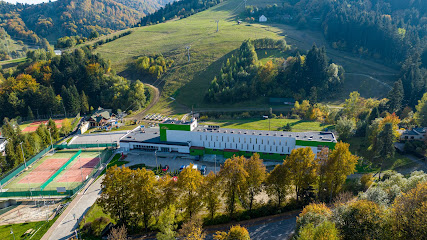
Villa Vita
Experience comfort and tradition at Villa Vita, your gateway to the scenic beauty of Zakopane and the Tatra Mountains.
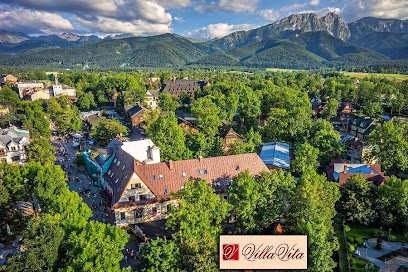
Pieniny
Explore the breathtaking Pieniny Mountains – a haven for nature lovers, hikers, and adventurers in southern Poland.
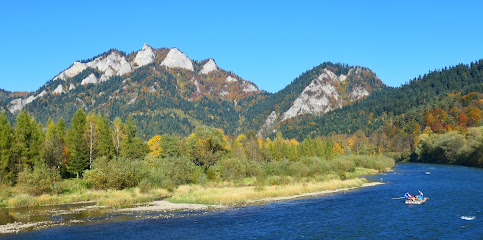
Dunajec Rafting & Kayaking Rivent - Sports
Embark on an unforgettable adventure at Dunajec Rafting & Kayaking Rivent, where thrilling experiences meet breathtaking landscapes in Poland's Pieniny mountains.
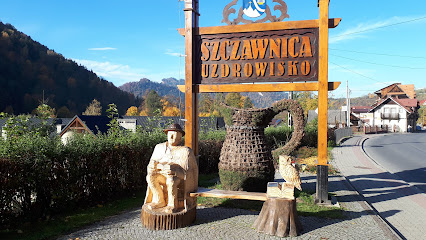
Essential bars & hidden hideouts
Schronisko PTTK Trzy Korony
Experience the beauty of Pieniny at Schronisko PTTK Trzy Korony, a cozy bar, restaurant, and hotel amidst stunning mountain landscapes.
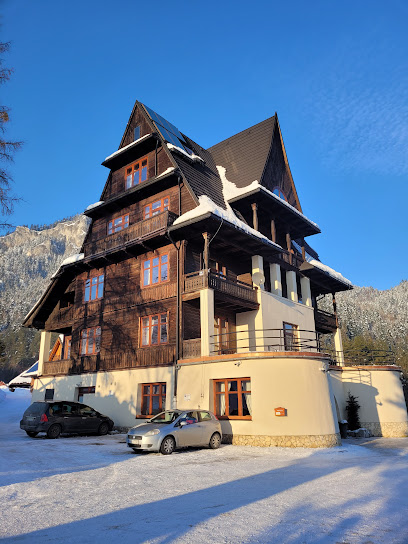
Zadyma
Indulge in traditional Polish flavors at Zadyma, where every dish tells a story against a breathtaking mountain backdrop.
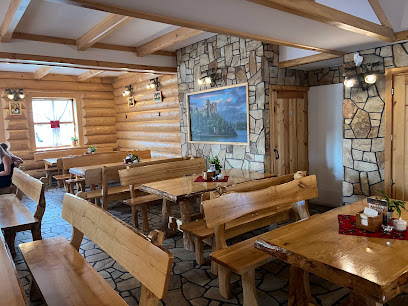
Restauracja Bacówka
Experience the essence of Polish cuisine at Restauracja Bacówka in Jaworki, where tradition meets flavor in a stunning natural setting.
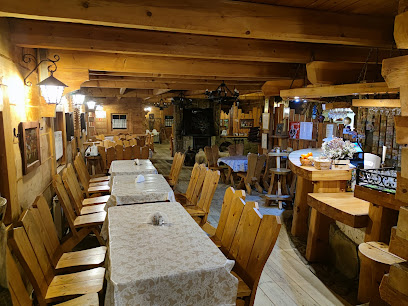
Markowa Zagroda - smażalnia pstrąga!
Discover the authentic taste of Poland at Markowa Zagroda, a charming fish restaurant in Mizerna, specializing in fresh trout and local flavors.
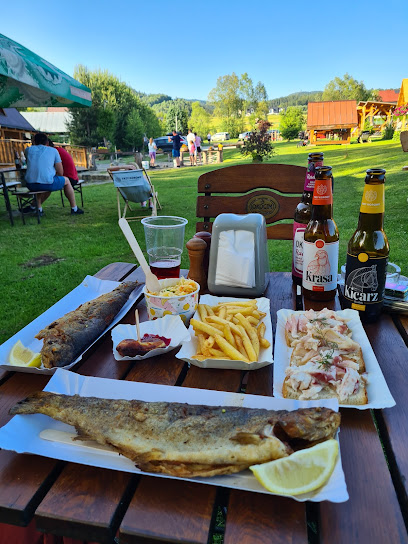
PTTK mountain hut under Bereśnikiem
Experience stunning mountain views and delicious local cuisine at the PTTK Mountain Hut under Bereśnikiem - a hiker's haven in Szczawnica.
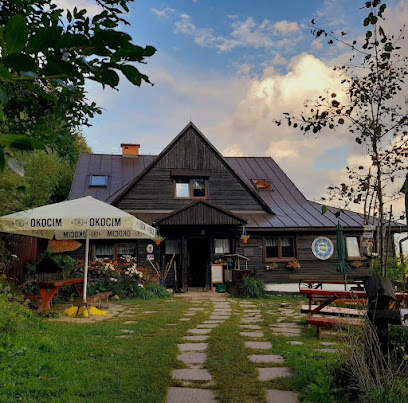
Karczma „U Walusia”
Savor the authentic taste of Poland at Karczma 'U Walusia', a charming restaurant in Krościenko nad Dunajcem, perfect for travelers seeking local flavors.
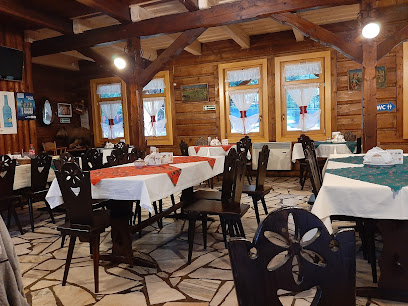
Willa Pokusa, restaurant, cafe
Discover Willa Pokusa, a charming restaurant and café in Szczawnica, perfect for enjoying delicious pizzas and aromatic coffee in a cozy setting.

Karczma u Madejów w Szczawnicy
Enjoy authentic Polish cuisine in a family-friendly atmosphere at Karczma u Madejów, the perfect dining spot in Szczawnica.
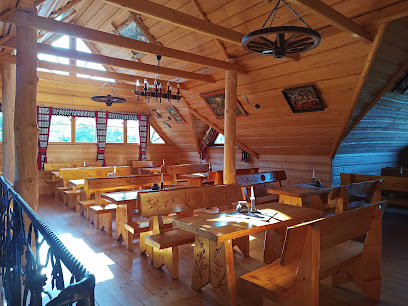
Wodka Bar
Explore the vibrant Wodka Bar in Kraków, where tradition meets a lively atmosphere and an extensive selection of fine vodkas.
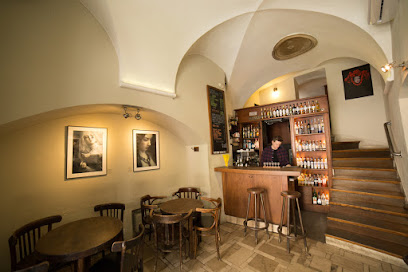
Restauracja „Przełom”
Experience the flavors of traditional Polish cuisine at Restauracja „Przełom” in Krościenko nad Dunajcem, surrounded by stunning landscapes.
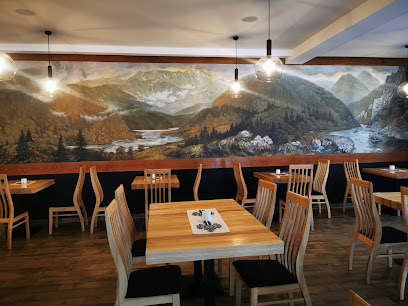
Zajazd pod Smrekami
Experience the rich flavors of Polish cuisine in a charming setting at Zajazd pod Smrekami, nestled in the stunning Pieniny Mountains.
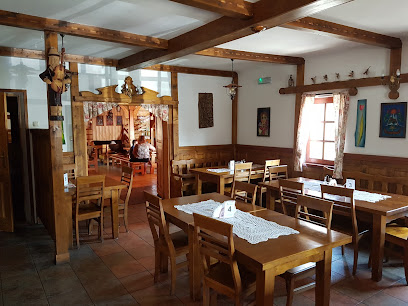
Cafe Helenka
Discover the flavors of Szczawnica at Café Helenka – a charming restaurant offering a unique culinary experience amidst breathtaking landscapes.
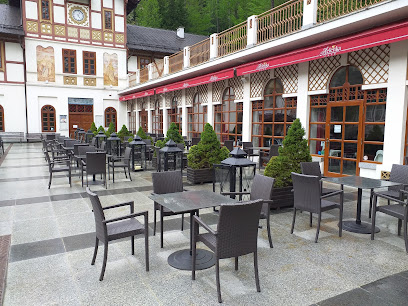
Trzcina cocktail bar
Experience the vibrant nightlife of Kraków at Trzcina Cocktail Bar, where expertly crafted cocktails meet a warm and inviting atmosphere.

Bar Pieniny
Discover the flavors of Szczawnica at Bar Pieniny, where local cuisine meets a warm, inviting atmosphere in the heart of nature's beauty.
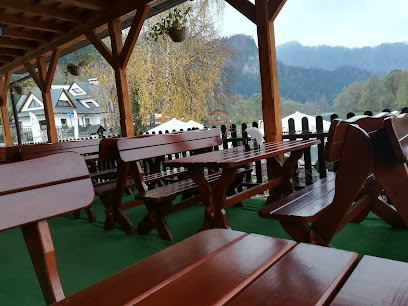
Local Phrases about Pieniny Mountains
-
- HelloCześć
[cheshch] - GoodbyeDo widzenia
[do veedzenia] - YesTak
[tak] - NoNie
[nye] - Please/You're welcomeProszę
[prosheh] - Thank youDziękuję
[jen-koo-yeh] - Excuse me/SorryPrzepraszam
[psheh-prasham] - How are you?Jak się masz?
[yak shyeh mash] - Fine. And you?Dobrze. A ty?
[dob-zheh. ah ti] - Do you speak English?Czy mówisz po angielsku?
[chi moo-veesh poh ang-yell-skoo] - I don't understandNie rozumiem
[nye roh-zoo-myem]
- HelloCześć
-
- I'd like to see the menu, pleaseChciałbym zobaczyć menu, proszę
[hchya-oom zoh-bah-chich meh-noo, proh-sheh] - I don't eat meatNie jem mięsa
[nye yem myen-sa] - Cheers!Na zdrowie!
[nah zdroh-vee-eh] - I would like to pay, pleaseChciałbym zapłacić, proszę
[hchya-oom zah-plah-cheech, proh-sheh]
- I'd like to see the menu, pleaseChciałbym zobaczyć menu, proszę
-
- Help!Pomocy!
[poh-moh-tsii] - Go away!Idź sobie!
[eedzh soh-bee-eh] - Call the Police!Zadzwoń po Policję!
[zahdz-voo-oon poh poh-leet-syeh] - Call a doctor!Zadzwoń po lekarza!
[zahdz-voo-oon poh leh-kah-zah] - I'm lostZgubiłem się
[zgoo-bee-wem shyeh] - I'm illJestem chory
[yeh-stem hoh-ri]
- Help!Pomocy!
-
- I'd like to buy...Chciałbym kupić...
[hchya-oom koo-peech] - I'm just lookingTylko się rozglądam
[till-koh shyeh rohz-gwah-dahm] - How much is it?Ile to kosztuje?
[ee-leh to kohs-too-yeh] - That's too expensiveTo za drogie
[toh zah droh-gyeh] - Can you lower the price?Możesz obniżyć cenę?
[moh-zhesh ohb-nee-zhoo-ch cheh-neh]
- I'd like to buy...Chciałbym kupić...
-
- What time is it?Która jest godzina?
[ktoo-rah yest goh-jee-nah] - It's one o'clockJest pierwsza
[yest pyeh-rv-sha] - Half past (10)Pół do jedenastej
[poow do yeh-nyan-stey] - MorningRano
[rah-noh] - AfternoonPopołudnie
[poh-poo-wood-nyeh] - EveningWieczór
[vyet-choor] - YesterdayWczoraj
[vchaw-rye] - TodayDzisiaj
[dzee-sye] - TomorrowJutro
[yoo-troh] - 1Jeden
[yeh-den] - 2Dwa
[dvah] - 3Trzy
[tshih] - 4Cztery
[ch-teh-ri] - 5Pięć
[pyen-ch] - 6Sześć
[shesh-ch] - 7Siedem
[shyeh-dem] - 8Osiem
[oh-syem] - 9Dziewięć
[dzye-vyen-ch] - 10Dziesięć
[dzye-shyen-ch]
- What time is it?Która jest godzina?
-
- Where's a/the...?Gdzie jest...
[gdzye yest] - What's the address?Jaki jest adres?
[yah-kee yest ah-dresh] - Can you show me (on the map)?Czy możesz mi pokazać (na mapie)?
[chi moo-zhesh mee poh-kah-zach (nah mah-pyeh)] - When's the next (bus)?Kiedy jest następny (autobus)?
[kyeh-dy yest nah-stehp-neh (ow-toh-boos)] - A ticket (to ....)Bilet (do ....)
[bee-let (do)]
- Where's a/the...?Gdzie jest...
History of Pieniny Mountains
-
The Pieniny Mountains, located in southern Poland, were formed over 200 million years ago during the Mesozoic era. The geological structure is primarily composed of limestone and dolomite, which provides the foundation for the dramatic cliffs and gorges that characterize the region. The natural beauty of these mountains has made them a subject of fascination for geologists and tourists alike.
-
The Pieniny Mountains are home to several medieval castles, most notably the Niedzica and Czorsztyn Castles. Built in the 14th century, Niedzica Castle served as a strategic fortification and border post for the Kingdom of Hungary. Czorsztyn Castle, situated across from Niedzica on the Czorsztyn Lake, was constructed to protect the trade routes and safeguard the region from invaders. These castles now stand as reminders of the region's turbulent medieval history.
-
The Dunajec River Gorge is one of the most spectacular natural features of the Pieniny Mountains. This river carved its way through the limestone cliffs, creating a stunning landscape that has been cherished by locals and visitors for centuries. The gorge has also been a critical trade route and strategic military passageway throughout history. Today, traditional wooden rafts are used to navigate its waters, offering an immersive way to explore the area's natural beauty.
-
According to local legend, Princess Kinga, the daughter of King Béla IV of Hungary, threw her ring into a salt mine in Hungary. The ring was miraculously found in the Wieliczka Salt Mine near Kraków, Poland, symbolizing the unity between the two nations. Niedzica Castle is said to hide treasures associated with this legend, adding an element of mystery and intrigue to its history.
-
Pieniny National Park was established in 1932, making it one of Poland's oldest national parks. It was created to protect the unique flora and fauna, as well as the geological formations of the Pieniny Mountains. The park includes the famous Three Crowns massif and the Dunajec River Gorge, attracting thousands of visitors annually who come to experience its pristine natural beauty and rich biodiversity.
-
During World War II, the Pieniny Mountains served as a refuge and strategic hideout for Polish resistance fighters. The dense forests and rugged terrain provided shelter and protection for those fighting against the Nazi occupation. The region's history during this period is marked by numerous skirmishes and acts of resistance, making it a poignant chapter in the broader history of Poland's struggle for freedom.
-
The Pieniny Mountains are rich in cultural heritage and folklore, with a blend of Polish, Slovak, and Hungarian influences. Traditional wooden architecture, folk music, and regional costumes are still prevalent in the area. Annual festivals celebrate local customs and traditions, offering a glimpse into the vibrant cultural tapestry that defines the Pieniny region. The folklore of the area includes tales of mythical creatures and heroes, further enriching its cultural landscape.
Pieniny Mountains Essentials
-
The Pieniny Mountains are located in southern Poland, near the border with Slovakia. The nearest major city is Kraków, which has an international airport (John Paul II International Airport Kraków-Balice) with flights from various European cities. From Kraków, you can take a bus or train to the town of Nowy Targ, which is about 40 kilometers from the Pieniny Mountains. Alternatively, you can rent a car and drive, which takes approximately 2 hours. From Nowy Targ, local buses and taxis can take you to your specific destination within the Pieniny region.
-
Once in the Pieniny Mountains, the most convenient way to explore the area is by car. Car rentals are available in Kraków and Nowy Targ. Public transportation options include local buses that connect the main towns and villages, such as Szczawnica, Krościenko nad Dunajcem, and Czorsztyn. Taxis are also available but can be more expensive. For a unique experience, consider renting a bicycle to explore the scenic trails. Additionally, ferries operate on the Dunajec River, offering picturesque views of the surrounding landscapes.
-
The official currency in Poland is the Polish Zloty (PLN). Credit and debit cards are widely accepted in most hotels, restaurants, and larger shops. However, it is advisable to carry some cash, especially when visiting smaller villages and rural areas. ATMs are available in the main towns like Szczawnica and Krościenko nad Dunajcem, so you can withdraw cash if needed.
-
The Pieniny Mountains are generally a safe destination for tourists. However, as with any travel destination, it is important to take standard precautions. Keep an eye on your belongings, especially in crowded areas and public transportation. Avoid walking alone at night in unfamiliar areas. There are no specific high-crime areas targeting tourists, but it is always best to stay vigilant and aware of your surroundings.
-
In case of emergency, dial 112 for general emergency services, which includes police, fire, and medical assistance. The main towns have medical facilities and pharmacies where you can seek help for minor health issues. It is recommended to have travel insurance that covers medical emergencies. For more serious health concerns, hospitals in Nowy Targ and Kraków are equipped to handle a wide range of medical situations.
-
Fashion: Do dress in layers and wear comfortable hiking shoes, as the weather can change quickly in the mountains. Avoid wearing revealing clothing, especially in religious sites. Religion: Do respect local customs and traditions. When visiting churches or religious sites, dress modestly and cover your head as a sign of respect. Public Transport: Do be courteous and offer your seat to elderly passengers. Don't eat or drink on public transport. Greetings: Do greet people with a friendly 'Dzień dobry' (Good day) and a handshake. Eating & Drinking: Do try local dishes and beverages. Accept food offerings graciously, as refusing can be considered impolite. Don't forget to say 'Dziękuję' (Thank you) after your meal.
-
To experience the Pieniny Mountains like a local, consider visiting during off-peak seasons to avoid crowds. Engage with locals, who are often friendly and willing to share insights about the region's history and culture. Don't miss a raft trip down the Dunajec River, a traditional and scenic way to explore the area. Try regional specialties such as oscypek (smoked cheese) and kwaśnica (sour cabbage soup). Attend local festivals and events to immerse yourself in the local culture. Additionally, hiking trails like Trzy Korony and Sokolica offer stunning viewpoints and are popular among locals.
Trending Landmarks in Pieniny Mountains
Nearby Cities to Pieniny Mountains
-
Things To Do in Poprad
-
Things To Do in Prešov
-
Things To Do in Tarnow
-
Things To Do in Krakow
-
Things To Do in Košice
-
Things To Do in Bielsko-Biala
-
Things To Do in Martin
-
Things To Do in Banská Bystrica
-
Things To Do in Žilina
-
Things To Do in Rzeszow
-
Things To Do in Miskolc
-
Things To Do in Salgotarjan
-
Things To Do in Gliwice
-
Things To Do in Ostrava
-
Things To Do in Kielce











